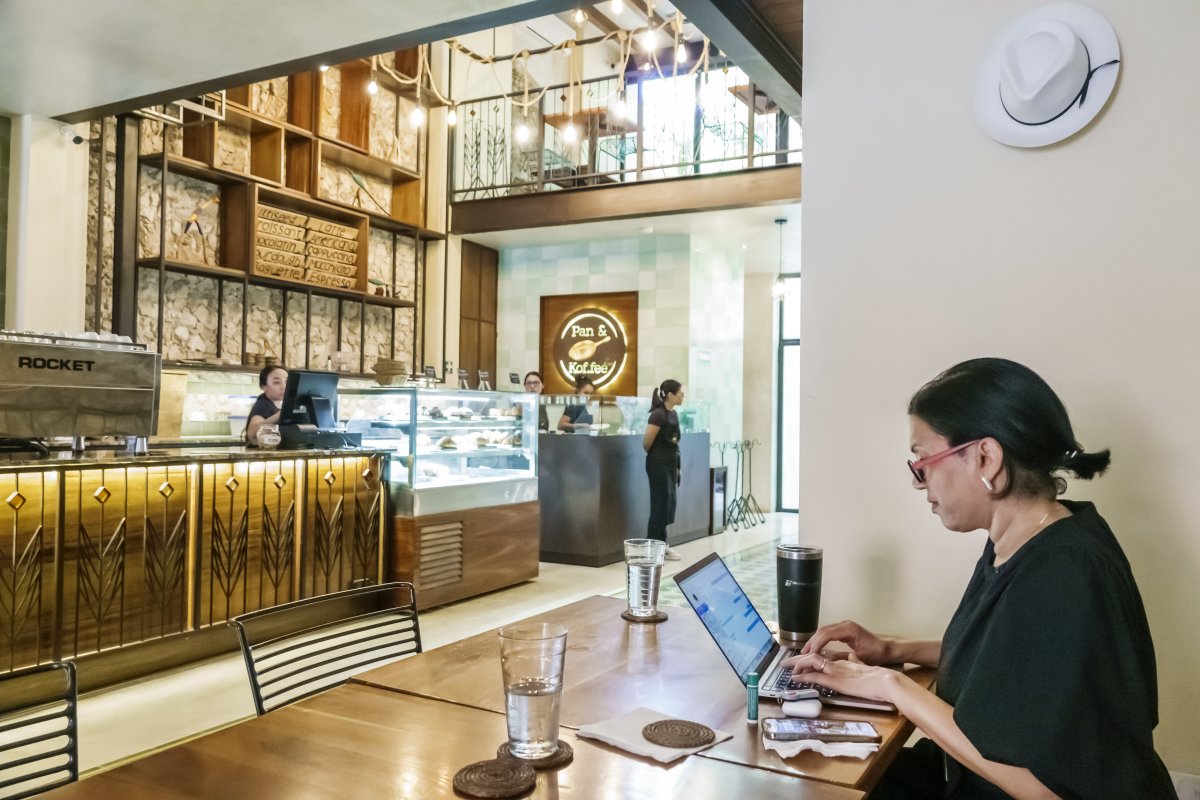While remote work might be preferred by a large portion of the workforce in the post-pandemic world, the numbers don't reflect the same working habits for men and women.
When working from home full time, 48 percent of women said they were working longer hours compared to just 43 percent of men, according to a new FlexJobs report.
Meanwhile, 42 percent of women said they worked the same amount as when working full time in office and a higher percentage of men, 47 percent, said the same. Only 10 percent of both men and women said they worked shorter hours than when they were in the office.
The higher number of hours worked from home for women might be surprising when women on average were far more likely to prefer a 100 percent remote job. In the report, 73 percent of women said that was their preferred work format, while only 63 percent of men did, despite often working the same number of hours or fewer.

Alison Stevens, senior director of HR Services at payroll and HR solutions company Paychex, said the longer hours likely occur as women are balancing more household responsibilities beyond the workplace, like child care and taking care of elder family members.
That could also be why women had a stronger preference for remote work, while men were more likely to prefer being in the office.
"Having the ability to work remotely allows a family's primary caretaker to 'do all the things' versus having to also coordinate their lives with the added complexity of commute times," Stevens told Newsweek.
Megan Pierouchakos, the senior director of DEI and membership relationship advisor at Seramount, echoed the sentiment, saying women, despite working full time, often still satisfy the role of primary caregiver for their children.
"Remote work offers women an opportunity for flexible work arrangements that allows them to spend more time at home, enabling them to manage those responsibilities as well," Pierouchakos told Newsweek.
The problem arises when companies look only to their in-person staff for promotions, she said.
"Companies that have adopted hybrid RTO structures should make sure that they aren't only rewarding those in the office with promotions, overlooking women in the process," Pierouchakos said.
Jen Mahone Rightler, the founder of the diversity and inclusion firm Elements2Inclusion, said the gap between the hours worked could show a larger issue in how companies are approaching their remote and hybrid work solutions.
"It also says that we are not looking at the bigger picture of what our female talent can truly do for our corporations if given the tools and resources to truly be flexible," Mahone Rightler told Newsweek. "Again, we have shown during COVID that we are more productive while working remotely, yet we don't want to find viable flexible solutions to make it work and are willing to risk losing top talent."
Since women have proved they can manage households, get the kids to school on time and work full time at a top-performing level, remote work seems the ideal option for many, and companies are starting to realize it, Mahone Rightler said.
"Why would they need to be in an office every day?" Mahone Rightler said. "Success in this new work environment looks differently, and we need to manage it differently. I just wish we would be more open to understanding the evolution of what real change requires and stop reverting back to old-school methodologies that no longer suit the vast majority of our populations."
Christine C. Durst, co-founder of the remote work platform RatRaceRebellion.com, said women surveyed by the company in managerial roles also reported logging longer hours than their male counterparts. Durst said it often came down to "concerns that they might be overlooked for promotions or raises because they were not physically present."
"They are often compelled to stack more work on today in hopes that tomorrow will be easier, only to find that 'tomorrow' is always 'super busy,'" Durst told Newsweek.
Societal expectations also often push women to prove themselves more within a professional setting, said Ally Nathaniel, owner of Soul Staffing Solutions.
"This can lead to women feeling compelled to take on additional responsibilities and placing greater pressure on themselves to perform well, while men may be more likely to attribute failure to external factors," Nathaniel told Newsweek, adding that this extends to other minority groups in the workforce, as well.
"While it may appear that women have made significant strides, the reality often tells a different story. Despite venturing into jobs outside the home, women continue to shoulder the majority of household responsibilities. This dual burden frequently leads to feelings of overload and eventual burnout."
Women also continue to face relatively unchanged workforces built around masculine norms and dynamics, she said.
"Especially for women, particularly those in the stage of bearing and raising children, the fear of potential job loss can be a significant motivator to go above and beyond to secure their employment," Nathaniel said. "This often translates to putting in extra hours while still needing the flexibility to manage familial responsibilities."
According to Paychex's small business data, the hourly earnings gender gap for women still stands at 81 cents for every dollar earned by men.
"The ultimate goal is to achieve a more equitable distribution of household burdens between men and women," Nathaniel added. "Hopefully, as societal norms continue to evolve, we'll see progress towards this shared responsibility and a more balanced approach to work-life dynamics."
Uncommon Knowledge
Newsweek is committed to challenging conventional wisdom and finding connections in the search for common ground.
Newsweek is committed to challenging conventional wisdom and finding connections in the search for common ground.
About the writer
Suzanne Blake is a Newsweek reporter based in New York. Her focus is reporting on consumer and social trends, spanning ... Read more
To read how Newsweek uses AI as a newsroom tool, Click here.








